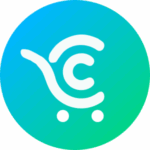In today’s rapidly evolving corporate landscape, organizations are constantly searching for efficient, cost-effective ways to train and upskill their employees. Free Learning Management Systems (LMS) have become increasingly popular solutions, providing a budget-friendly alternative to proprietary platforms while offering comprehensive training features. These systems enable organizations of all sizes to implement effective e-learning programs that foster continuous development, enhance employee engagement, and improve overall productivity.
One major advantage of free LMS options is their affordability. Without licensing fees or subscription costs, businesses can redirect resources toward content creation, instructional design, or other strategic initiatives. Many free LMS platforms come equipped with core features like course management, progress tracking, quizzes, and reporting tools—making them suitable for small to medium-sized enterprises or internal training needs.
As workforce development continues to be a strategic focus, organizations recognize that investing in employee growth is crucial for maintaining a competitive edge. Free LMS solutions serve as foundational tools in modern learning strategies, providing flexible, scalable, and cost-effective means to deliver impactful training across various industries.
Elevate Training: Integrate Your Free LMS with HR Tools for a Streamlined Learning Experience!
Connect Your Free LMS with HR Tools for Enhanced Employee Training!
The Benefits of Integrating HR Tools with Your LMS for Streamlined Talent Management
Integrating Human Resources (HR) tools with your Learning Management System (LMS) transforms talent management by creating a seamless ecosystem for employee development. This integration allows for smooth coordination in recruiting, onboarding, training, and performance management, enabling organizations to optimize workforce strategies.
By linking HR software—such as applicant tracking systems (ATS), performance management tools, and HR information systems (HRIS)—with your LMS, companies can automate administrative tasks, reduce redundancies, and improve data accuracy. For example, when a new employee is hired, their details can automatically populate within the LMS, simplifying onboarding and ensuring immediate access to relevant training modules.
Enhanced Talent Acquisition and Onboarding
HR-LMS integration facilitates a smoother onboarding process by enabling new hires to access tailored training programs aligned with their specific roles. Automated workflows can assign onboarding courses, monitor completion rates, and notify HR managers of progress—reducing manual effort and accelerating onboarding timelines.
Efficient Training and Performance Tracking
Unified systems allow managers to monitor employee training progress and performance metrics in real time. This comprehensive view helps identify skill gaps, recommend targeted courses, and track improvements—all within a single platform. Such insights support data-driven decisions and foster continuous professional development.
Automation and Data Accuracy
Automation minimizes administrative burdens, reduces errors, and guarantees consistency across HR and training processes. Synchronizing data between HR systems and LMS ensures employee records are current, aiding compliance, reporting, and strategic planning.
In conclusion, integrating HR tools with your LMS enhances talent management by promoting proactive development efforts, nurturing a learning culture, and aligning training initiatives with organizational objectives. Platforms like Paradiso LMS offer seamless integration features that streamline workflows and boost overall productivity.
Technical Feasibility of Connecting Free LMS Platforms with HR Systems
Integrating free LMS platforms with HR systems is increasingly vital for organizations aiming to streamline onboarding, compliance, and ongoing training. From a technical standpoint, such integration is feasible but depends on the specific LMS, HR system, and available methods.
Popular free LMS options like Moodle and Canvas typically offer APIs (Application Programming Interfaces) that facilitate data exchange. These APIs enable synchronization of user profiles, course completions, and training records with HR software. Standards such as SCORM, xAPI (Experience API), and LTI (Learning Tools Interoperability) further support interoperability between e-learning content and HR platforms.
However, technical feasibility hinges on factors such as:
- Compatibility of data formats
- Availability of APIs or integration plugins
- Customization capabilities
- Security protocols for data transfer
Organizations may need custom development or middleware solutions to bridge compatibility gaps, especially if native integration options are limited.
Common Challenges Faced During Integration
Despite the possibility of integration, several obstacles may arise:
- Limited API capabilities and documentation: Many free LMS platforms lack comprehensive APIs or detailed documentation, complicating programmatic data exchange. Basic APIs may not cover all necessary functions, requiring custom coding.
- Data security and privacy concerns: Transferring sensitive employee data involves addressing encryption, access controls, and compliance with regulations like GDPR.
- Incompatibility of data standards: Variations in data formats may cause synchronization errors or incomplete records.
- Resource and technical expertise constraints: Integration often demands specialized IT skills in API management, data mapping, and customization, which some organizations lack.
- Scalability and maintenance: As organizational needs grow, maintaining scalable and stable integrations becomes challenging, especially without dedicated support.
Key Considerations When Selecting an LMS for HR Integration
Choosing an LMS that supports seamless HR integration requires careful evaluation:
- API availability and flexibility: Opt for LMS platforms offering well-documented APIs supporting standards like REST or SOAP.
- Compatibility with existing HR systems: Verify whether the LMS integrates smoothly with your current HR software, such as SAP SuccessFactors, Workday, or BambooHR.
- Security and compliance: Ensure the LMS adheres to data security standards, including encryption and access controls, to protect sensitive information.
- Customization and extensibility: A platform that allows customization through plugins or APIs can better accommodate organizational needs.
- Community support and documentation: Active user communities and comprehensive documentation ease the integration process, especially for open-source options.
- Support for standards: Support for interoperability standards like SCORM, xAPI, and LTI enhances compatibility with diverse HR systems.
- Cost considerations: While free LMS platforms reduce licensing costs, potential expenses for development, support, and security infrastructure should be factored in.
In summary, connecting free LMS platforms with HR systems is technically achievable by leveraging APIs and interoperability standards. Organizations must evaluate compatibility, API support, security, and internal capabilities to ensure smooth, secure, and scalable integration. Leading solutions like Paradiso LMS provide advanced integration features and ongoing support, making them especially suitable for enterprise-level needs.
Review of Popular Free LMS Options: Features and Limitations in HR Tool Integration
Choosing an LMS suited for effective training and HR tool integration involves understanding the capabilities and limitations of various free platforms. Here’s a review of some of the most widely used free LMS options, focusing on their features and how well they support HR tool integration.
Moodle: The Open-Source Leader with Extensive Customization
Features: Moodle is renowned for its extensive features, including course authoring, quizzes, assignments, collaboration tools, and a rich plugin ecosystem. Its open-source nature allows deep customization to fit organizational needs.
HR Tool Integration: While not inherently designed for HR functions, Moodle can connect with HR systems like SAP, Oracle, or BambooHR through plugins or third-party connectors. These integrations facilitate synchronized employee data, compliance management, and certification tracking.
Limitations: Significant technical expertise is required for setup and customization. Native HR capabilities are limited, and reliance on third-party integrations can increase complexity. Performance may also depend on hosting infrastructure, especially for larger organizations.
Canvas LMS: User-Friendly with Basic HR Integrations
Features: Canvas offers an intuitive interface suitable for educational and organizational training, supporting multimedia content, assessments, collaboration, and basic analytics.
HR Tool Integration: Canvas supports standards like LTI and SSO, enabling connections with HR systems such as Workday and BambooHR. However, these are typically limited to user provisioning and single sign-on rather than comprehensive HR management.
Limitations: Advanced HR integrations may require custom development or third-party tools. The free tier tends to have limited features, with some functionalities only available in paid plans.
TalentLMS (Free Tier): Simple and Quick Deployment for Small Teams
Features: TalentLMS emphasizes ease of use and rapid setup. It supports course creation, assessments, progress tracking, and basic reporting. The free plan supports up to 5 users and 10 courses, ideal for small groups or pilot projects.
HR Tool Integration: It offers integrations with HR tools like BambooHR and SAP SuccessFactors via APIs or automation platforms like Zapier. These enable data synchronization and onboarding workflows.
Limitations: Limited in user capacity and features in the free plan. More advanced HR integrations and customization options often require paid plans.
Open edX: Scalable and Enterprise-Oriented
Features: Open edX is a highly scalable, open-source platform suited for large organizations. It offers multimedia courses, assessments, interactive content, and detailed analytics, widely used in enterprise settings.
HR Tool Integration: Requires custom API development and LTI integration efforts. Native HR functionalities are minimal, so integrations mainly support content delivery and data sharing.
Limitations: Deployment and maintenance demand significant technical resources. It’s less geared toward embedded HR functions out of the box.
Summary Table
| Platform | Strengths | HR Integration Capabilities | Limitations |
|---|---|---|---|
| Moodle | Highly customizable, extensive plugin system | Supported via plugins; flexible but requires expertise | Technical setup needed; limited native HR features |
| Canvas | User-friendly, supports standards like LTI and SSO | Basic integrations with HR systems; may need custom work | Paid plans unlock more features; limited advanced HR support |
| TalentLMS | Easy deployment, quick setup | API and Zapier integrations; limited in free version | User cap and feature limits on free plan |
| Open edX | Scalable, enterprise-ready features | Requires custom API development for HR integration | Resource-intensive deployment; less HR-centric out of the box |
In conclusion, while free LMS options provide a range of core training features, their capacity for seamless HR tool integration varies. Organizations must evaluate their technical resources, integration needs, and organizational size when selecting the best platform. For those requiring advanced integration and support, solutions like Paradiso LMS offer comprehensive capabilities suited for enterprise-scale needs.
Introducing Paradiso LMS: A Versatile Solution for Efficient Employee Development
In today’s fast-paced work environment, effective employee training is vital for staying competitive and fostering a motivated workforce. Paradiso LMS emerges as a comprehensive and adaptable learning management system designed to meet diverse organizational training needs. Its key strength lies in seamless integration capabilities with major HR tools, enabling organizations to optimize their training workflows within existing HR ecosystems.
Paradiso LMS offers scalable solutions suitable for small startups to large enterprises. Its flexible features allow customization of learning paths, content delivery, and assessment methods—ensuring training programs are engaging, relevant, and aligned with organizational goals.
Security is a core focus, with robust safeguards to protect sensitive employee data and training materials. The platform complies with industry standards and data privacy regulations, giving organizations confidence in their training infrastructure.
By leveraging Paradiso LMS, companies can enhance employee development programs through secure, integrated, and scalable management. Its compatibility with various HR tools streamlines operations, enriches learning experiences, and increases employee engagement—driving organizational success.
🚀 Ready to See Paradiso LMS in Action?
Let’s show you how Paradiso LMS can work for you.
Final Thoughts: Unlocking Your Organization’s Training Potential
In today’s competitive environment, effective employee training is essential for sustainable growth. This comprehensive guide highlights the importance of understanding your organization’s unique training needs—whether onboarding, upskilling, or compliance—and tailoring strategies accordingly.
Evaluating current training processes to identify gaps and opportunities for improvement can pave the way for impactful transformation. Embracing advanced LMS solutions like Paradiso can help foster a strong learning culture, boost productivity, and increase employee satisfaction. Taking proactive steps now ensures your organization remains agile, competitive, and equipped for future growth in a fast-changing business landscape.

















